What is a hypothesis?
An educated guess that attempts to explain an observation or answer a question
The variable of part on an experiment to which all other variables will be compared is called the ____?
a. variable
b. scientific method
c. control
d. hypothesis
c. control
rings, age
What is the force of attraction existing between any 2 masses
Gravity
The study of Earth's physical structure, its history, the processes acting on it, and the rocks of which it is composed of is called_____
Geology
What is meteorology?
The study of weather
What is the smallest chemical unit of matter
An atom
All of these are examples of what?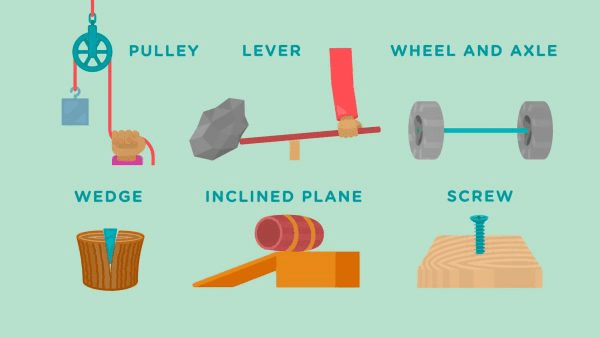
Simple machines
Photosynthesis
Animals that have a backbone are called___________
Vertebrates
Which ocean is not considered an ocean basin?
Southern Ocean
Fill in the blank: Science is NOT a means by which something can be _______?
Proved
Experiments in which neither the experimenters nor the participants know the object's identities in the setup are known as what type of experiments?
Double- blind experiments
Which type of test determines whether a document contradicts other known historical facts from other reliable documents or known archaeological facts is known as
-internal
-external
-bibliographic
External
Give one example each of a natural and an artificial satellite of Earth.
Moon (natural) ISS (artificial)
How is most of the Earth's sediment laid down.
By water
Which layer of the atmosphere is characterized by several layers of different gases?
homosphere or heterosphere
Heterosphere
What are the basic types of particles that make up an atom?
Protons, neutrons and electrons
Velocity measures speed and _______ of an object
Direction
The first criterion of life is that all living things contain hereditary information in their _______ that enables life to continue through reproduction
DNA
Why is a virus not considered to be a living organism?
Because it is not able to reproduce on it's own
A jellyfish has a (polyp, medusa) body shape.
medusa
Science that relies on relics from the past and historical records to try and discover the truth is called?
Historical Science
What is an experimental variable?
An aspect of an experiment that changes during the course of the experiment
internal, external or bibliographic
Which type of planet tends to rotate slower: terrestrial or Jovian
Terrestrial
Label the layers of the Earth. 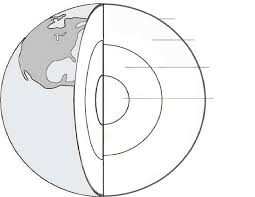
Crust, mantle, outer core, inner core
Which type of cloud shape has a white, puffy, flat-bottomed shape?
cumulus, status, cirrus
Cumulus
How many protons does a single atom of Lithium have?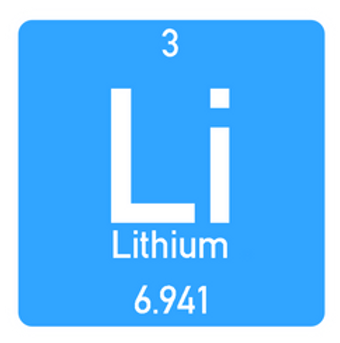
3 protons
An object in motion (or at rest) will tend to stay in motion (or at rest) until is is acted upon by an outside force.
Which cell type does NOT have a nucleus?
Bacteria
Which complex molecule is involved in nearly every reaction that supports life and primarily make up muscle and other organs of the body. They are made up of amino acids.
Proteins
Which ocean organism swims with their tails side to side?
fish
Science that uses observable, repeatable experiments to try and discover truth is called?
Operational Science
Name 3 types of graphs mentioned in your chapter?
circle, line, bar, double bar
How does an Internal test, test the validity of a document?
Why is the term "dark side of the Moon" incorrect when referring to the shaded part of the moon?
The moon receives light on all sides, we just don't see it from earth because the rotation and revolution is the same as Earth's.
What is the difference in structure between minerals and rocks?
Minerals often form crystalline shapes and rocks do not.
What is the barrier at the upper edge of the mesosphere called?
thermopause
What type of chemical bond is this?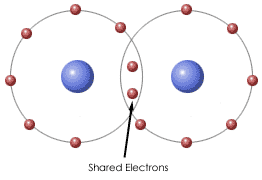
co-valent bonding
What does translucent mean?
Allows some light through
List, in order, the 7 classification classes largest to smallest.
Kingdom, Phylum, Class, Order, Family, Genus, Species
What are the 4 major molecules needed for life.
Protein, carbs, lipids and nucleic acids
Why are multicellular algae not true plants?
They do not have true leaves (do not have veins), roots (do not absorb nutrients) or stems (do not have vascular system).
What is a counter example?
An example that contradicts a conclusion
Label and create the title, x-axis and y-axis
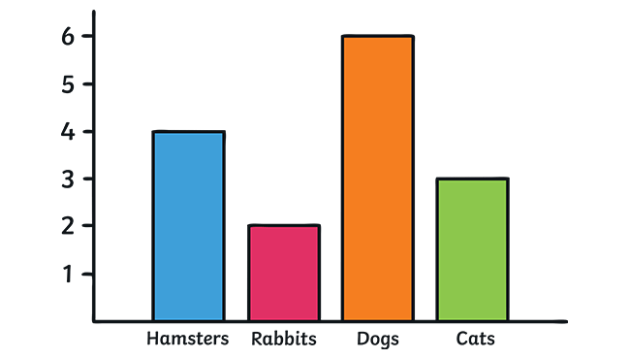
Common House Pets (title)
Number of pets(y-axis)
Pet types (x-axis)
Carbon-14
Name the 8 planets in order starting form the sun.
Mercury, Venus, Earth, Mars, Jupiter, Saturn, Uranus, Neptune
What rock type is most common in the Grand Canyon.
Sedimentary rock
Name 3 air properties that are taken into consideration that meteorologists use to help predict the weather.
temperature, humidity, pressure and wind direction, wind speed
What are the 3 main properties of a base?
Taste chalky or bitter, feel slippery, and receive hydrogen ions.
A large flashlight is powered by a 9-volt battery and represents an electrical circuit. In this circuit, what is the load?
Light bulb (any object that needs to be turned on)
Name 2 of the 6 criteria for life.
1. All living things contain DNA
2. All use energy
3. All can sense changes in surroundings and respond to the changes
4. All are made of cells
5. All chemically regulate their internal environment
6. All living things grow
What is a saprophyte?
An organism that obtains their nourishment from dead organisms
What tiny organisms convert atmospheric nitrogen into usable molecules?
Cyanobacteria (will accept blue-green algae)